-
1.Ada Lovelace
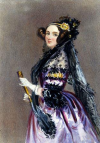
-
Ada was the daughter of Lord Byron and Anne Isabella ‘Annabella’ Milbanke. The marriage was not a happy one and when Ada was month old her mother took her to live with her family in Leicestershire. Unusually for the time her father did not insist that she stayed with him, he left England a few months later and she didn't see him again.
-
2.Sir Alan Hodgkin
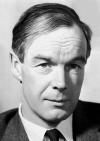
-
Sir Alan Lloyd Hodgkin was the definition of an eminent scientist. His achievements included presidency of the Royal Society, mastership of Trinity College, Cambridge and a knighthood. In 1963, he was also one of three scientists awarded a prestigious Nobel Prize in Physiology or Medicine.
-
3.Albert Szent Gyorgyi
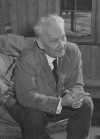
-
Albert Szent-Gyorgyi was a Hungarian physiologist who won the Nobel Prize in Physiology and Medicine in 1937. He was the first to isolate vitamin C and his research on biological oxidation provided the evidence for the citric acid cycle. Moreover, his research into muscular contraction shed light on the field of muscle research. Szent-Gyorgyi was very interested in cancer, and was one of the first scientists to explore the connections between free radicals and cancer.
-
4.Aldo Leopold
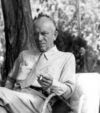
-
Aldo Leopold has been described as the most influential conservationist of the twentieth century. He is known as the father of wildlife management and of America’s wilderness system. His legacy covers sustainable agriculture, forestry, wildlife management, environmental history, restoration ecology and ethics.
-
5.Professor Sir Alec John Jeffreys

-
Professor Sir Alec Jeffreys FSB is a British geneticist who discovered the technique that was to be known as DNA fingerprinting, now an invaluable tool in forensic science.
-
6.Sir Alexander Fleming
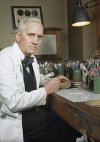
-
A Scottish biologist, pharmacologist and botanist who is best known for discovering penicillin, Fleming has had a huge impact on the world in which we live.
-
7.Alfred Russel Wallace
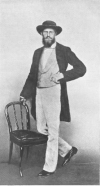
-
Alfred Russel Wallace is known as an intrepid explorer, who spent time in Singapore, Malaysia, Borneo and the Amazon Basin, and who came up with a very similar theory of evolution to Charles Darwin, completely independently. It’s less well known that he was also part of an anti-vaccination movement, and he frequented séances.
-
8.Sir Andrew Fielding Huxley
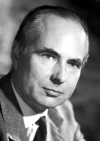
-
Sir Andrew Huxley, Nobel laureate, master of Trinity Cambridge and president of the Royal Society, was one of the great scientific minds of the twentieth century. His breadth of knowledge and eye for designing specialist equipment helped pioneer research into nerve function.
-
9.Angelina Fanny Hesse
-
Angelina Fanny Hesse is a largely overlooked and forgotten woman in biology. While not a scientist by training, she was instrumental in the development of the agar plate that is now an invaluable medium for growing and examining bacteria.
-
10.Dame Anne McLaren
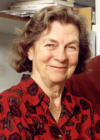
-
Anne McLaren was a geneticist who pioneered advances in mammalian genetics and embryology. Her work contributed to our understanding of reproductive biology and paved the way for the development of IVF.
-
11.Anne Pratt
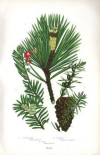
-
Anne Pratt was a grocer’s daughter who went on to become one of the most popular botanical artists of the Victorian age, writing and illustrating more than 20 volumes.
-
12.Dr Annie McCall
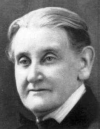
-
Dr Annie McCall was an extraordinary doctor in a time when women were only beginning to be allowed to study medicine. Deeply concerned with the high death rate of mothers during childbirth, she set up her own maternity hospital in London and was instrumental in striving for equality in the workplace.
-
13.Sir Anthony Carlisle
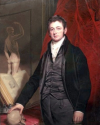
-
Naked guardsmen and gothic novels are not things that spring to mind when you are asked to think of a typical surgeon, but then Anthony Carlisle was far from typical. Born in 1768 in Stillington, a village in County Durham, Carlisle started his medical career training with his uncle in York. He then trained with a surgeon in the City of Durham before moving to London, where he became a surgeon at Westminster Hospital in 1793. He held this position until his death in 1840.
-
14.Antonie van Leeuwenhoek
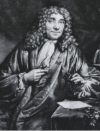
-
Antonie van Leeuwenhoek was a Dutch textile merchant who became a pioneer of microbiology.
-
15.Archibald Vivian Hill
-
Archibald Vivian Hill, known more commonly as AV Hill, was a British biophysicist and physiologist who received the Nobel Prize for Physiology and Medicine in 1922 for his research concerning the production of heat in muscles.
-
16.Professor Arlette Nougarède
-
Arlette Nougarède is a French cytologist interested in the study of plants. In 1961 she set up a laboratory where her studies pioneered the way to modern approaches and understanding of plant development.
-
17.Sir Arthur George Tansley
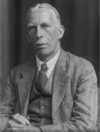
-
As the son of a successful business man with a passion for education, Sir Arthur George Tansley was always destined to live a remarkable life. Since his death in 1955 he has been marked as one of the great pioneers of the science of ecology. He introduced the idea of the ecosystem which entirely changed the way people viewed and studied environments forever.
-
18.Augustine Henry
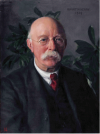
-
Augustine Henry made the wonders of Chinese flora known to the world, gave his name to many plant species and is known as the father of commercial forestry in Ireland.
-
19.Barbara McClintock
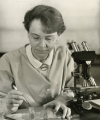
-
Barbara McClintock was a leading cytogeneticist and discovered ‘jumping genes’ (DNA sequences that move from one location on the genome to another). Her discovery changed the way scientists thought about genetic patterns of inheritance and helped to advance our understanding of evolution.
-
20.Barbara Pickersgill
-
Barbara Pickersgill is an English horticultural botanist and geneticist whose research into plants and botany has made her an expert on the capsicum chilli pepper.



